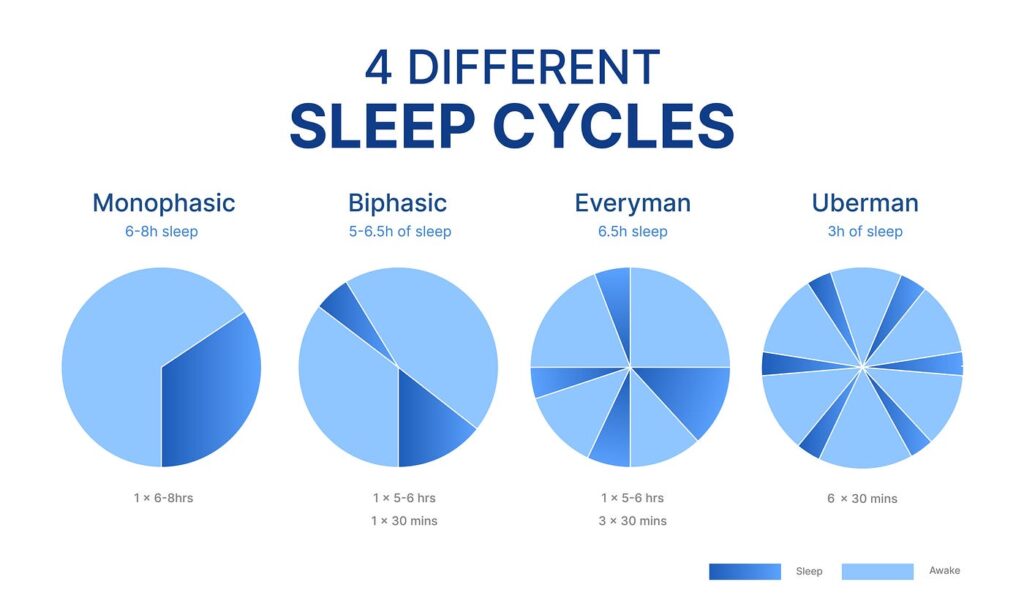
Examining the Relationship Between Sleep Patterns and Academic Performance
The relationship between sleep patterns and academic performance has long been a subject of interest for researchers, educators, and students alike. Sleep, a fundamental aspect of human life, plays a crucial role in various cognitive functions, including learning, memory consolidation, and problem-solving. In this blog, we will delve into the intricate connection between sleep quality, quantity, and academic achievement, exploring the latest research findings and practical implications.

Understanding Sleep Patterns: Sleep patterns refer to the regularity, duration, and quality of sleep experienced by an individual. While the recommended amount of sleep varies across age groups, generally, adults require 7-9 hours of sleep per night for optimal functioning. However, the quality of sleep is equally important as its duration. Factors such as sleep latency (time taken to fall asleep), sleep efficiency (percentage of time spent asleep while in bed), and sleep architecture (the structure and pattern of sleep cycles) influence overall sleep quality.
The Impact of Sleep on Academic Performance: Numerous studies have established a significant correlation between sleep and academic performance. Adequate sleep has been linked to better attention, concentration, and cognitive function, all of which are crucial for effective learning. Conversely, sleep deprivation or poor sleep quality can impair these cognitive functions, leading to decreased academic performance.
1. Memory Consolidation: Sleep plays a vital role in memory consolidation, the process by which newly acquired information is stabilized and integrated into long-term memory. During sleep, especially during REM (rapid eye movement) sleep, the brain processes and consolidates information obtained throughout the day. Insufficient sleep can disrupt this process, affecting the retention and recall of learned material, ultimately impacting academic performance.
2. Cognitive Functioning: Sleep deprivation has been shown to impair various cognitive functions, including attention, decision-making, and problem-solving abilities. Inadequate sleep can lead to decreased vigilance and increased distractibility, making it challenging for students to focus on academic tasks and perform optimally in exams or assignments.
3. Emotional Regulation: Sleep also plays a crucial role in emotional regulation, influencing mood, stress levels, and overall well-being. Chronic sleep deprivation has been associated with increased stress, anxiety, and depression, all of which can negatively impact academic performance. Conversely, sufficient sleep promotes emotional resilience and enhances coping mechanisms, enabling students to better manage academic challenges.
Practical Implications and Recommendations: Recognizing the importance of sleep for academic success, educators, parents, and students can take proactive steps to improve sleep hygiene and promote healthy sleep habits.
1. Establish a Consistent Sleep Schedule: Maintaining a regular sleep schedule, with consistent bedtimes and wake-up times, helps regulate the body’s internal clock and promotes better sleep quality.
2. Create a Sleep-Conducive Environment: A comfortable and conducive sleep environment, free from distractions such as electronic devices, noise, and excessive light, can facilitate relaxation and promote better sleep.
3. Prioritize Sleep: Encourage students to prioritize sleep and recognize its significance for academic performance. Balancing academic commitments with sufficient rest is essential for long-term success.
4. Educate About Sleep Hygiene: Educate students about the importance of good sleep hygiene practices, such as avoiding caffeine and stimulating activities before bedtime, practicing relaxation techniques, and winding down before sleep.
Navigating the intricate relationship between sleep patterns and academic performance can be challenging for students. While understanding the importance of adequate sleep is crucial, balancing academic commitments and maintaining healthy sleep habits requires careful planning and support. MakeMyAssignments, a leading academic assistance platform, recognizes the significance of both academic success and well-being. In this section, we’ll explore how MakeMyAssignments can support students in optimizing their sleep patterns and enhancing their academic performance.
1. Customized Assignment Assistance: MakeMyAssignments offers personalized assignment assistance tailored to the specific needs and requirements of each student. By providing high-quality, custom-written assignments, essays, and research papers, MakeMyAssignments alleviates the academic burden on students, allowing them to focus on other aspects of their academic journey, including maintaining healthy sleep habits.
2. Time Management and Planning: One of the key challenges students face is managing their time effectively to balance academic tasks with other responsibilities and activities. MakeMyAssignments assists students in optimizing their time management skills by delivering assignments within stipulated deadlines, enabling students to allocate sufficient time for study, relaxation, and sleep.
3. Academic Support and Guidance: MakeMyAssignments provides comprehensive academic support and guidance to students across various disciplines and academic levels. From subject-specific tutoring sessions to academic counseling and mentoring, MakeMyAssignments empowers students to excel in their studies while maintaining a healthy work-life balance, including prioritizing adequate sleep.
4. Stress Reduction and Mental Well-being: The academic pressure faced by students can often lead to stress, anxiety, and sleep disturbances. MakeMyAssignments aims to alleviate this pressure by offering reliable academic assistance and support services. By reducing academic stressors, MakeMyAssignments contributes to improved mental well-being, allowing students to enjoy better sleep quality and overall health.
5. Educational Resources and Learning Tools: MakeMyAssignments provides access to a wide range of educational resources, including study materials, academic journals, and learning tools. By empowering students with the necessary resources and tools to succeed academically, MakeMyAssignments fosters a conducive learning environment that encourages balanced lifestyles, including prioritizing adequate sleep.
In conclusion, MakeMyAssignments serves as a valuable ally for students seeking to optimize their sleep patterns and enhance their academic performance. Through personalized assignment assistance, time management support, academic guidance, stress reduction initiatives, and access to educational resources, MakeMyAssignments empowers students to achieve academic success while prioritizing their well-being. By partnering with MakeMyAssignments, students can strike a harmonious balance between academic excellence and healthy sleep habits, laying the foundation for long-term success and fulfillment in their academic endeavors.





